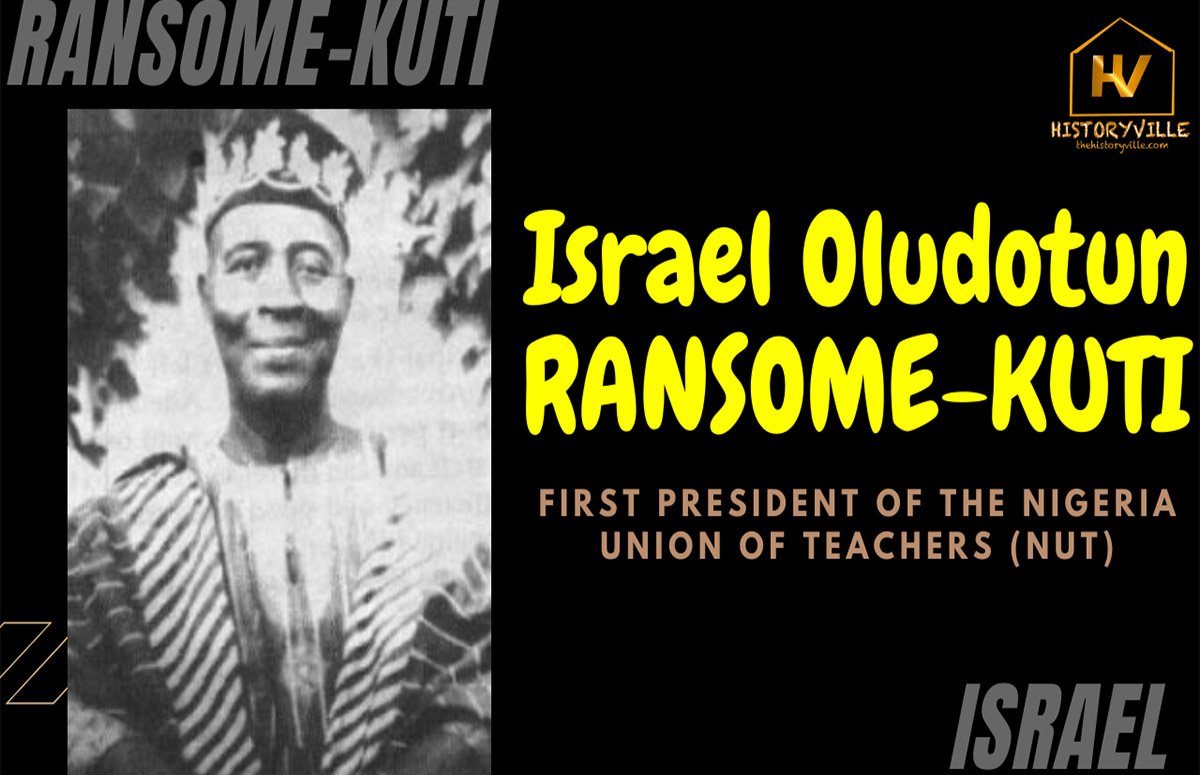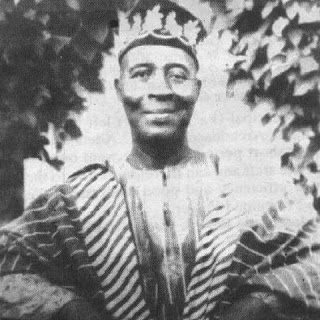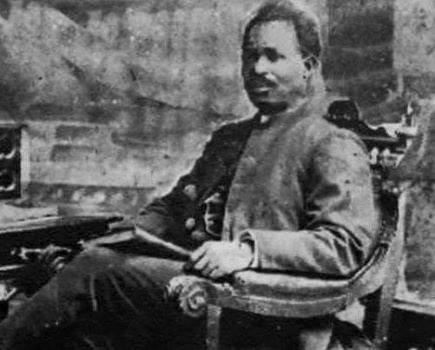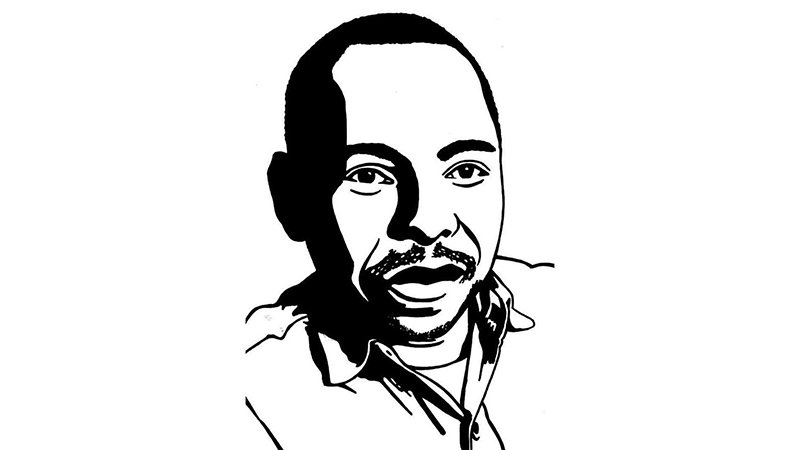No products in the cart.

Contents
Early Life and Education
Israel Oludotun Ransome-Kuti was born at Ija-Ofa parsonage, the Anglican parish of Gbagura, Abeokuta, where his father was serving as a teacher/catechist. He started his primary education at the Gbagura Primary School and St. John’s Primary School, Suren Village, Ifo, in 1896. Thereafter, he proceeded to the C.M.S. Grammar School, Lagos, in 1904, but returned to his hometown, Abeokuta, four years later to complete his secondary education at the newly opened Abeokuta Grammar School. He was the first student to be admitted to the school in 1908.

In 1913, Ransome-Kuti matriculated at Fourah Bay College, Freetown and returned to his country in 1916 with a B.A. degree. He began work in Lagos as a teacher at his former grammar school from 1916 until 1918, when he left for Ijebu-Ode.[1]
Principal, Ijebu-Ode Grammar School
Israel Oludotun Ransome-Kuti was 27 years old when he became the principal of Ijebu-Ode Grammar School in the Ijebu-Ode Province, the youngest Nigerian to be principal of a secondary school.[2] The school had been established in 1912 and had provided the only secondary education for all the residents of the Ijebu province. Ransome-Kuti was there for nearly 14 years.
One of his modernisations at this pioneering educational institution was to organise the first Boy Scout troupe in Ijebu-Ode. The troupe then became known in the Ijebu-Ode Province as the first of its kind. Israel Oludotun Ransome-Kuti’s great knowledge and sensitivity towards the Ijebu people soon won him their admiration and respect, and he became their spokesman.

Ransome-Kuti acted as a mediator between the British colonial residents in the province and the locals. His unparalleled achievements in Ijebu broke the myth that his own ethnic group, the Egba people of Abeokuta, could not work hand-in-hand with the Ijebu people, and he was able to draw the two groups together for the common good.
His departure from Ijebu in 1932 was marked with a widespread expression of loss and regret that his successor at the Ijebu-Ode Grammar School struggled to fill his shoes. It then erupted the popular saying among the people that, “This new Kuti is not as the old.[3]“
Principal, Abeokuta Grammar School
On leaving Ijebu-Ode in 1932, Israel Oludotun Ransome-Kuti returned to his hometown, Abeokuta, where, for the next 22 years, he served as principal of the Abeokuta Grammar School. During that period, he visited the United Kingdom at the start of World War II in 1939 and again, during the war between 1943 and 1945.
Ransome-Kuti spent the latter years in Britain as one of the members of the Elliott Commission reviewing higher education in West Africa.
First President, Nigeria Union of Teachers (NUT)
In May 1926, while he was at the Ijebu-Ode Grammar School, Israel Oludotun Ransome-Kuti founded an association of local teachers. It was known as the Association of Headmasters of Ijebu Schools. A similar association had been formed a year earlier in 1925 in Lagos by another renowned Anglican clergyman, Reverend Jonathan Olumide Lucas. Lucas was the one who inaugurated the Lagos Union of Teachers in May 1925.
These two bodies grew and became the base from which the idea of a national organisation that embraced teachers from all parts of Nigeria was born. On July 8, 1931, they culminated in the formation of the Nigeria Union of Teachers, NUT.
At its founding that year, in Lagos, Israel Oludotun Ransome-Kuti was elected as the Union’s first national president. At successive elections, he was re-elected and he held that post until his retirement in 1954 at the age of 63.

A man of a strong, forceful and charismatic personality, Ransome-Kuti guided the union in its early campaign for improved working conditions for teachers and against colonial education policy in general. He and his contemporaries in the executive body of the NUT, notably Alvan. A. Ikoku (1900-1971), Eyo Ita Esua (1901-1973; later Chairman of Nigeria’s Federal Electoral Commission in the First Republic; 1964-1966), and the Reverend (later Bishop) Seth Irunsewe Kale (1904-1996) were successful in winning recognition from the British colonial authorities as well as benefits for their members, that by October 1948 were said to have numbered 20,000.[4]
With the improved conditions, the union grew rapidly and by the 1960s had become the largest professional organisation in Africa, with a membership that exceeded a quarter of all the teachers on the continent.
Today, education is still the largest single employer in Nigeria, directly touching more Nigerians than any other service. The thousands of teachers who joined the NUT annually soon found not only respectability but also strength in their union. It was the foresight and dedication of the Reverend Israel Oludotun Ransome-Kuti that led to that dignity and unity.
Marriage and Family
On January 25, 1925, Israel Oludotun Ransome-Kuti married his heartthrob of 12 years, Funmilayo Ransome-Kuti, former Miss Frances Abigail Olufunmilayo Thomas. He had met her when she was 13, and Oludotun waited for her to complete her education before he married her.[5] He was 33 while she was 24. Together, they had four children: Dolupo, Olikoye, Olufela, and Bekolari.
Israel Oludotun Ransome-Kuti’s Death
On April 6, 1955, less than a year after his retirement and 24 days before his 64th birthday, Reverend Israel Oludotun Ransome-Kuti died of a cancer-related illness at his residence in Isabo, Abeokuta. He was 63.

Legacy
Reverend Israel Oludotun Ransome-Kuti was instrumental in the founding of the first university in Nigeria, the University of Ibadan, at Ibadan, and as a musician, he composed the national anthem of Egbaland. His favourite quote was, “My character is greater than my books.”
Many great and prominent Nigerians have passed through the revered Ransome-Kuti and Abeokuta Grammar School, some of whom were his grand-nephew, Nobel Prize Winner, Wole Soyinka, late Ooni of Ile-Ife, Oba Sijuwade Olubuse, Iyalode of Egbaland, Bisoye Tejuoso, her son, Oba Dapo Tejuoso, and others too numerous to mention.
Israel Oludotun Ransome-Kuti holds the record for the longest-serving president of the Nigeria Union of Teachers (23 years) and the principal of Abeokuta Grammar School (22 years).
The Reverend Kuti Memorial Grammar School, Isabo, Abeokuta, and Kuti Hall, one of the halls of residence at the University of Ibadan, which opened in 1954, are named after him. Also, a head statue of Ransome-Kuti is mounted at the entrance of the Abeokuta Grammar School, Idi-Aba, Abeokuta.
Your support can make a world of difference in helping us continue to bring Nigeria’s rich history to life! By donating to HistoryVille, you’re directly contributing to the research, production, and storytelling that uncover the incredible stories of our past. Every donation fuels our mission to educate, inspire, and preserve our heritage for generations to come.
Please stay connected with us through our social media handles and make sure you are subscribed to our YouTube Channel. Together, let’s keep the stories of Nigeria’s past alive.
References
- [1] Dictionary of African Christian Biography (n.d.). Ransome-Kuti, Israel Oludotun. Dictionary of African Christian Biography. Retrieved from https://dacb.org/stories/nigeria/ramsome-kuti-israel/
- [2] Cheryl Johnson-Odim and Nina Emma Mba, For Women and the Nation: Funmilayo Ransome-Kuti of Nigeria (University of Illinois Press, Urbana and Chicago, 1997), p. 38.
- [3] Johnson-Odim and Mba, For Women and the Nation: Funmilayo Ransome-Kuti of Nigeria, p. 37.
- [4] Dictionary of African Christian Biography.
- [5] Johnson-Odim and Mba, For Women and the Nation: Funmilayo Ransome-Kuti of Nigeria, p. 33.







Leave a Reply
View Comments